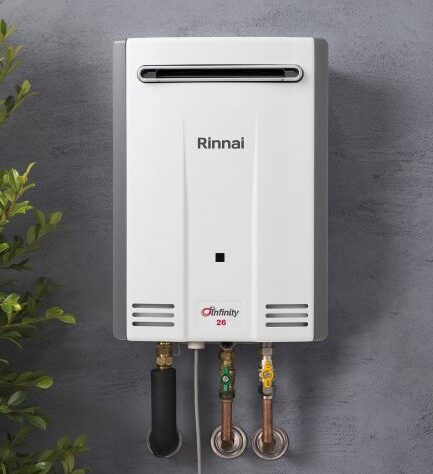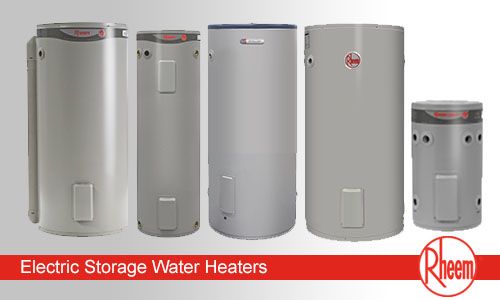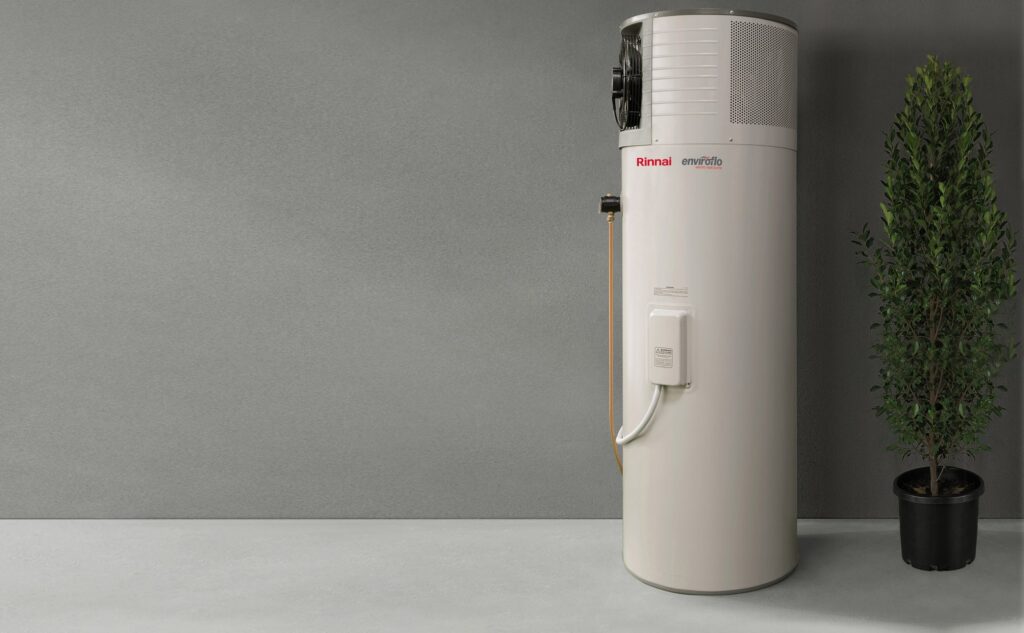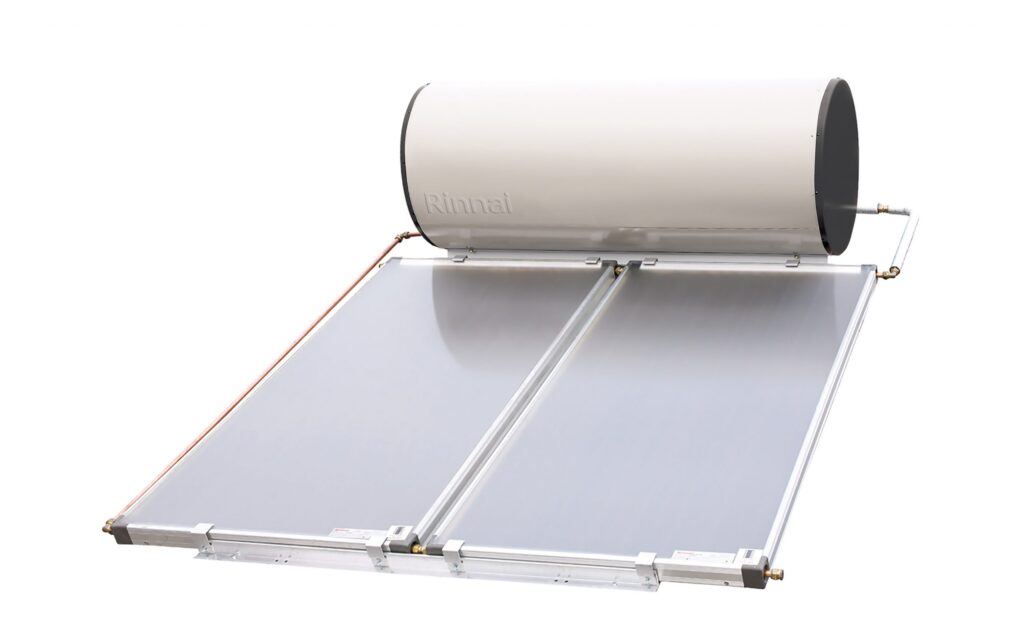 A gas continuous hot water system is a type of water heating system that uses natural gas or LPG (liquefied petroleum gas) to heat water as it is needed. Unlike electric storage units, solar units, and heat pumps, which store hot water in a tank for later use, gas continuous hot water systems heat water on demand, which means that they provide an unlimited supply of hot water.
A gas continuous hot water system is a type of water heating system that uses natural gas or LPG (liquefied petroleum gas) to heat water as it is needed. Unlike electric storage units, solar units, and heat pumps, which store hot water in a tank for later use, gas continuous hot water systems heat water on demand, which means that they provide an unlimited supply of hot water.
One of the primary benefits of a gas continuous hot water system is its energy efficiency. Because they only heat water when it is needed, they use less energy than electric storage units, solar units, and heat pumps, which can lose heat through the tank and pipework. In addition, because they do not require a tank to store hot water, gas continuous hot water systems take up less space and can be installed in areas with limited space, such as small apartments or outdoor areas.
Another benefit of gas continuous hot water systems is their fast recovery time. Because they heat water on demand, they can provide hot water almost instantaneously, which is particularly beneficial for households with high hot water usage or for those who need hot water quickly, such as in commercial settings.
However, there are some potential drawbacks to consider. Gas continuous hot water systems can be more expensive to install than electric storage units, solar units, and heat pumps, particularly if you do not already have a gas line installed. In addition, because they rely on fossil fuels, gas continuous hot water systems are not as environmentally friendly as solar or heat pump systems, which use renewable energy sources. Finally, gas continuous hot water systems require annual maintenance to ensure they are operating safely and efficiently.
In summary, a gas continuous hot water system can provide a reliable and efficient source of hot water, particularly for households with high hot water usage or limited space. However, it’s important to weigh the benefits and drawbacks of different hot water system options to determine the best fit for your specific needs and circumstances.
Quality Plumbing Services from a Team of Professionals

 An electric storage hot water service is a type of water heating system that stores hot water in a tank for later use. When the hot water is used, the system refills the tank and heats the water to the desired temperature.
An electric storage hot water service is a type of water heating system that stores hot water in a tank for later use. When the hot water is used, the system refills the tank and heats the water to the desired temperature.
One of the primary benefits of an electric storage hot water service is its relatively low upfront cost compared to gas continuous flow, solar units, and heat pumps. Electric storage systems are also easy to install and do not require a gas line, making them a convenient choice for homes that do not have access to natural gas.
Another benefit of electric storage hot water systems is that they can be powered by renewable energy sources, such as solar or wind power, making them a more environmentally friendly option compared to gas continuous flow systems, which rely on fossil fuels.
However, there are some potential drawbacks to consider. Electric storage hot water services can be less energy efficient than gas continuous flow, solar, or heat pump systems, because they can lose heat through the tank and pipework. They can also take longer to reheat the tank after it has been depleted, which can be a disadvantage for households with high hot water usage.
Additionally, electric storage hot water systems may not be suitable for households with limited space, as they require a tank to store the hot water. Finally, the cost of operating an electric storage hot water system can be higher than gas continuous flow, solar, or heat pump systems, depending on the cost of electricity in your area.
In summary, an electric storage hot water service can provide a reliable and convenient source of hot water at a relatively low upfront cost. However, it’s important to consider the potential energy efficiency, space requirements, and operating costs when choosing a hot water system that is best suited for your specific needs and circumstances.
Quality Plumbing Services from a Team of Professionals

 A heat pump hot water system is a type of water heating system that uses heat pump technology to heat water. Instead of generating heat directly, a heat pump system extracts heat from the air, ground, or water and uses it to heat the water in the storage tank. The heated water is then distributed through the household’s hot water pipes as needed.
A heat pump hot water system is a type of water heating system that uses heat pump technology to heat water. Instead of generating heat directly, a heat pump system extracts heat from the air, ground, or water and uses it to heat the water in the storage tank. The heated water is then distributed through the household’s hot water pipes as needed.
One of the primary benefits of a heat pump hot water system is its high energy efficiency compared to electric storage units, solar units, and gas continuous flow systems. Heat pumps are able to generate more heat energy than the electricity they consume, resulting in significant energy savings over time. This makes heat pumps a more environmentally friendly and cost-effective option for households looking to reduce their energy usage.
Another benefit of heat pump hot water systems is their versatility. They can be used in a variety of climates, and can work efficiently in both warm and cold weather conditions. Heat pumps also do not require any flammable fuels, making them safer than gas continuous flow systems.
Heat pump hot water systems are also designed to have a longer lifespan compared to other types of water heating systems, with many models expected to last up to 15 years or more. They also require less maintenance compared to gas continuous flow systems, which require regular gas line checks and maintenance to ensure safety.
However, there are some potential drawbacks to consider. Heat pump hot water systems tend to have a higher upfront cost compared to electric storage units, although the energy savings over time can help offset this expense. They also require adequate space for the heat pump unit and storage tank, which may not be suitable for households with limited space.
Finally, heat pump hot water systems may not be ideal for households with high hot water usage, as the system may take longer to reheat the water tank compared to gas continuous flow systems.
In summary, a heat pump hot water system can provide significant energy savings and long-term cost benefits for households. However, it’s important to consider the upfront costs, space requirements, and potential limitations when choosing a hot water system that is best suited for your specific needs and circumstances.
Quality Plumbing Services from a Team of Professionals

 A solar unit hot water system is a type of water heating system that uses energy from the sun to heat the water. The system is made up of solar collectors that are installed on the roof, which absorb the sun’s energy and transfer it to a storage tank. The heated water is then distributed through the household’s hot water pipes as needed.
A solar unit hot water system is a type of water heating system that uses energy from the sun to heat the water. The system is made up of solar collectors that are installed on the roof, which absorb the sun’s energy and transfer it to a storage tank. The heated water is then distributed through the household’s hot water pipes as needed.
One of the primary benefits of a solar unit hot water system is its high energy efficiency compared to electric storage units, heat pumps, and gas continuous flow systems. Since the energy source is the sun, the cost of energy is free and abundant. This makes solar units an environmentally friendly and cost-effective option for households looking to reduce their energy usage and lower their energy bills.
Another benefit of solar unit hot water systems is their reliability. Since they rely on a renewable energy source, they are less prone to the price fluctuations and supply disruptions that can occur with non-renewable energy sources like gas and electricity. Solar units also require very little maintenance, making them a hassle-free option for households.
However, there are some potential drawbacks to consider. Solar unit hot water systems may not work as efficiently in colder weather or in areas with limited sunlight, which may require a backup system. They also require adequate roof space for the solar collectors and may not be suitable for households with limited roof space or shading issues.
Finally, solar unit hot water systems may have a higher upfront cost compared to electric storage units and gas continuous flow systems, although the long-term energy savings can help offset this expense. The system may also take longer to heat the water compared to gas continuous flow systems, which may not be ideal for households with high hot water usage.
In summary, a solar unit hot water system can provide significant energy savings and cost benefits for households that have adequate roof space and receive ample sunlight. However, it’s important to consider the upfront costs, backup system requirements, and potential limitations when choosing a hot water system that is best suited for your specific needs and circumstances.
Quality Plumbing Services from a Team of Professionals

